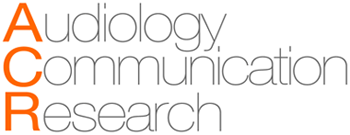Purpose The aim of the current study was to determine the efficacy of auditory training and to establish the long-term effectiveness of the acquired auditory abilities one, two or three years following the completion of the program.
Methods Ten children, who presented abnormal auditory processing ranging in degree from mild-moderate, moderate, to moderate-severe, underwent an 8-week auditory training program. All participants were reassessed immediately after training (POST-1) and one, two or three years after training (POST-2).
Results Significant differences were detected in average performance between the assessment made prior to auditory training (PRE) and POST-1 assessment, and between PRE and POST-2 assessments, but no significant differences were found between POST-1 and POST-2 assessments. No correlations were detected between POST-1 and POST-2 time interval, and the difference in performance between these two evaluations. The auditory processing assessments in POST-1 were considered normal, or were mildly altered. Further, 60% of the individuals achieved the same results in POST-2 assessment.
Conclusion In the current study, we verified that auditory training is an effective intervention for Auditory Processing Disorders, and that the benefits obtained after training persist even after intervals of one, two or three years following intervention.

 Maintenance of auditory abilities after auditory
training
Maintenance of auditory abilities after auditory
training

